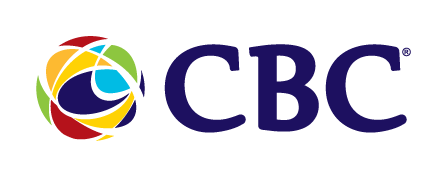
Technology firm tTech Limited is on the hunt for training partners in response to growing demand fuelled by the COVID-19 pandemic.
With its third-quarter financials showing challenged revenues and declining profits, tTech CEO Christopher Reckord told the Financial Gleaner that the planned move into the training market is meant to capitalise on one of the opportunities created by the pandemic.
“Although we are not a training company, we have been getting a lot of calls to do training. We have reached out to some small and medium-sized individuals (in training field) to say, let’s see if we can create some sort of joint venture,” Reckord said in an interview.
“Part of our 2021 mandate is to find some strategic partnerships to offer services that we are not doing as our core service right now, but services that businesses and the economy need,” he said.
The company, which is in the business of development and management of IT infrastructure, including voice, data and computer systems, has been responding to the training needs of its core customers, but has not yet been onboarding new customers for IT training, Reckord added.
Other market opportunities have also been thrown up by the pandemic, including the need to protect companies’ information technology platforms.
Increased Risks
“Globally, cybersecurity risks have increased tremendously across the board. The instant we saw this pandemic, we ramped up our messaging to all our customers to tighten security,” Reckord said, adding that the pandemic created an additional layer of cybersecurity challenge – that of protecting major business IT platforms to allow secure work-from-home arrangements.
With its expertise in cybersecurity, operating systems, networks and cloud computing, the company, its CEO said, has been upgrading the security of digital platforms for its long-term customers and taking on short-term cybersecurity projects for some new clients requiring that service.
“There are a number of people who have had IT-related and digital transformation projects in the pipeline and had been holding off for a while, but they now realise that in order for them to maintain their business at current levels, they have to start these projects right now,” Reckord said.
Much of this new business was booked in the second quarter even as many clients began scaling back IT projects, resulting in revenues for that quarter dipping more than eight per cent and profits plunging by more than 45 per cent over the corresponding three months of 2019. For the third quarter to September this year, revenues were $92.3 million, 12 per cent below the $105 million earned in the corresponding period in 2019; while net profit was $5.5 million, a more than 51 per cent decrease on the $11.3 million the tech firm booked in the year-prior period.
Reckord said some of the new business is not yet reflected in the top-line income, as the multi-year nature of some projects requires time for assessment, recommendations and implementation. Meanwhile, its revenues have been hurt by the economic situation facing many businesses, particularly those in the hotel and travel industries.
“We have a diversified portfolio, and so we have customers in the most affected areas; for example, in the hospitality sector, and some are supporting airlines. Those companies have throttled back with their (business) because they have no revenues. They have asked us to defer some of our projects and services until they ramp back up. That’s where we have been hit negatively,” Reckord said.
While the company has been reining in expenses over the past two quarters, there has been a reduction in its cash position as it presses ahead with what it considers necessary investments in additional workers and vital “world-class” technology tools procured from North America.
“Our team is massively important, so we have not cut staff, and are making major investments in education for the staff; and while our profits have taken a hit as a result, it’s an investment we are willing to make,” Reckord said, conceding that the company has now put the brakes on new hiring, having added some eight people so far this year.
Increased cyberthreats have also had a moderating effect on the tTech bottom line as it beefs up its own cybersecurity investments.
“One of the strategic investments that we are making is to shore up our own cybersecurity investment risk posture, not only in terms of the services we offer our customers, but for us as a company. We had to make sure that we reduced our risk in that area,” said Reckord.
“So, we decided to bring forward part of a plan we already had in place. We do vulnerability assessment, penetration testing and IT security assessments for all our customers, but we have to hire external people to do it for us,” he said.








